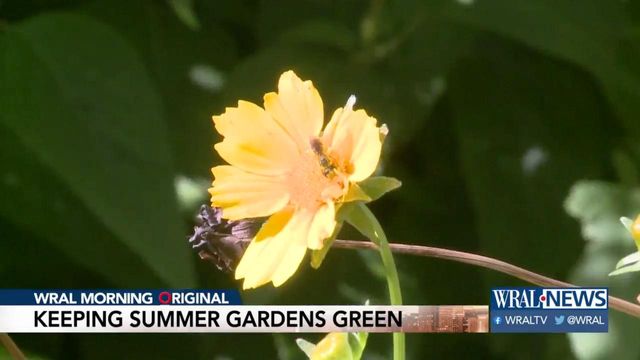NC State expert: How to protect your garden from summer heat
It's that time of the year when summer heat starts to kill your plants. A horticulturist from North Carolina State University has some tips to keep your garden alive and thriving.
Posted — UpdatedIt's that time of the year when summer heat starts to kill your plants. A horticulturist from North Carolina State University has some tips to keep your garden thriving.
Don't blame the season, says N.C. State horticulture agent Dr. Jeana Myers, sharing that even her garden suffers the ravages of heat and pests.
Once you have the kit, simply dig up a small amount of soil from different areas, mix them together, fill the box and mail it in. The kit -- and test results -- are free. "The turnaround time is usually around 7 to 10 days during the summer," Myers said.
Another tip from Myers is that there's a right way and a wrong way to water your lawn and garden. Gardeners should water lawns deeply -- up to 1 inch per week spread out over a few days.
Myers said to do it early, not late in the day "so that grass doesn't set wet all night, which may bring on a disease problem."
In the summer, add mulch around your garden plants to help them hold moisture. Mulch also keeps water from evaporating so quickly and reduces the amount of times you need to water your lawn or garden.
"It also keeps those plants from being so stressed out that they tend to attract disease and insect pressure," Myers said.
When it comes to bugs, Myers said she prefers more natural pest control options, like insecticidal soap sprays. Try not to kill beneficial insects like bees and other pollinators.
"So there's usually more than one way to deal with insects in the garden," Myers said. "And we try to look for the ways that are less invasive."
According to Myers, a garden that attracts birds and bees will make your garden feel alive. You can achieve this by planting a diversity of plants, which will attract those beneficial insects that will help you maintain an equilibrium in your garden.
• Credits
Copyright 2024 by Capitol Broadcasting Company. All rights reserved. This material may not be published, broadcast, rewritten or redistributed.





